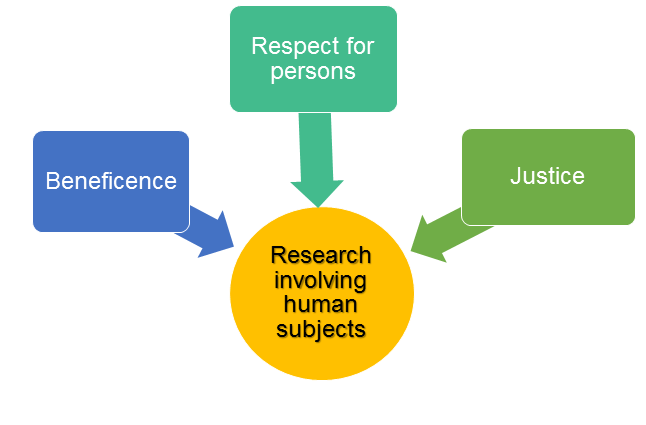The incidence of many unethical research before, during and long after the World War II, has led to the development of ethical codes, guidelines and regulations for research involving human subjects.
The Belmont Report was produced in 1979 after four years of continuous deliberation by the U.S. National Commission for the Protection of Human Subjects of Biomedical and Behavioral Research. It describes three fundamental principles that are inherent in many other guidelines and regulations, thus can provide a useful ethical basis for researchers: (33)

National Commission for the Protection of Human Subjects of Biomedical and Behavioral Research. The Belmont Report - Ethical principles and guidelines for the protection of human subjects of research [Internet]. 1979 Apr [cited 2018 Nov 28]. Available from: https://www.hhs.gov/ohrp/regulations-and-policy/belmont-report/read-the-belmont-report/index.html